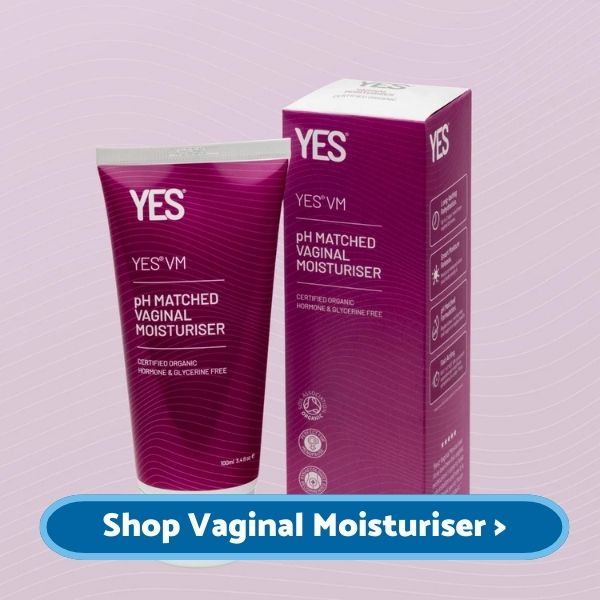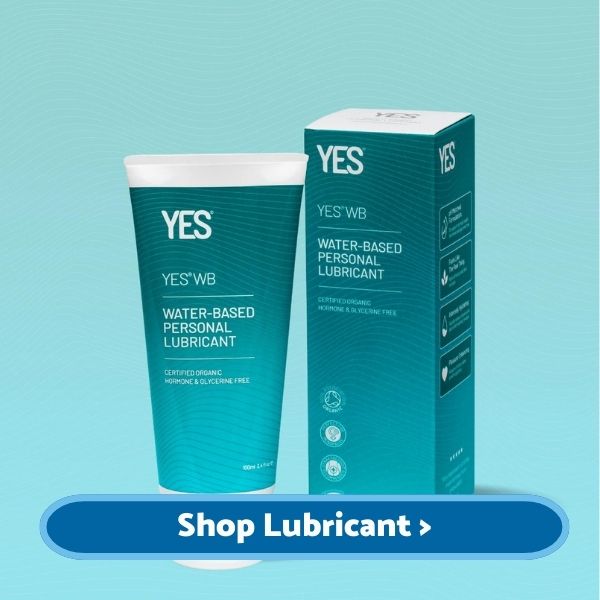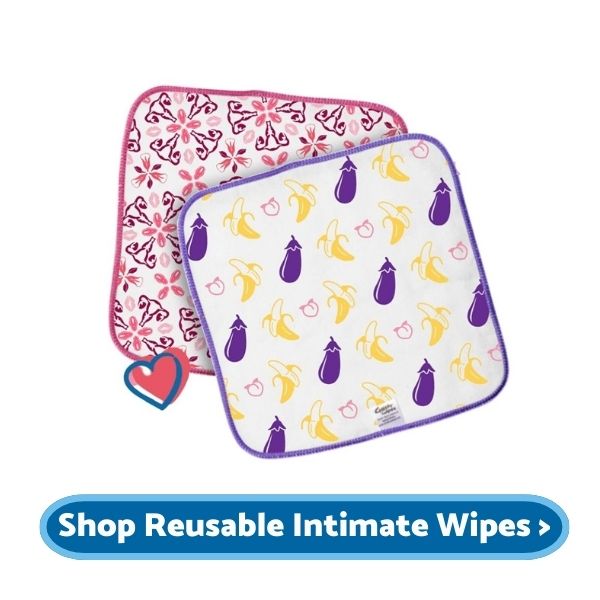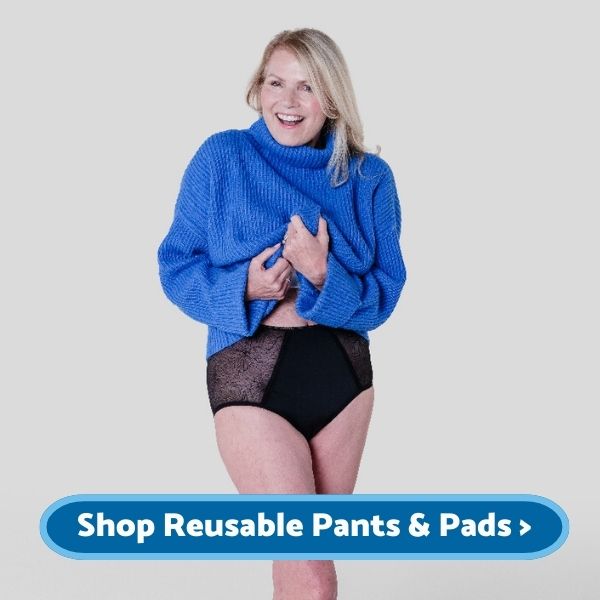Tackling Vaginal Dryness Pre and Post-Menopause
Vaginal dryness is a common condition that affects women of all ages, but is more common after menopause, with an estimated 50% of postmenopausal women aged between 51 and 60 thought to suffer experience vaginal dryness, as well as irritation, pain, burning or bleeding during sex as common symptoms of menopause.
This is because the ovaries stop producing estrogen during menopause, which causes the skin, vulva, vaginal walls and lining of the vagina to become thinner and less elastic (vaginal atrophy) which can cause vaginal dryness.
Around 17% of women aged 18-50 also experience problems with vaginal dryness, even before the menopause takes place. This can still be caused by low levels of estrogen, though other factors such as a lack of arousal, the use of certain intimate hygiene products, and certain drug treatments can also dry out your vaginal tissues.
Vaginal dryness doesn’t only cause pain during sex, but can make it uncomfortable to sit, stand, exercise, urinate or work, which can mean it is sometimes mistaken for sexually transmitted infections (STI) or thrush. It can also cause recurring urinary tract infections (UTI's)
As well as talking to your doctor to arrange a treatment plan, there are certain things you can if you're experiencing vaginal dryness both before and after the menopause:

1. Try a Vaginal Moisturiser
A specially formulated vaginal moisturiser (a regular face or body cream could do more harm than good) can help to ease symptoms of dryness. Instead of sitting on the skin’s surface, the product is absorbed by the skin, and works to trap and hold moisture in skin tissue.
The World Health Organisation (WHO) recommends using products with a pH of 4.5 and an osmolality below 1200 mOsm/kg.
We recommend YES® vaginal moisturiser is for women suffering from moderate to severe vaginal dryness or atrophy for regular use over a long period of time.
YES® VM is balanced for vaginal pH and osmolality and provides moisture for up to 3 days!
You may have some discharge when you start using a vaginal moisturiser, but this is normal and should clear up fast.

2. Use Lube For Sex
A pH-balanced lube can help to relieve dryness, discomfort and feelings of friction during sex, which can make sex feel more comfortable and pleasurable. Always good!
A small amount of lube can be placed inside (or at the entrance) of a vagina, on your partner's penis or fingers, and used with sex toys.
Avoid those labelled cooling or warming as these could increase irritation when you have vaginal dryness. We stock Yes, organic water based vaginal lubricant which gives a most natural texture and feel, whilst providing maximum lubrication and moisture during sexual intercourse.
You should also avoid lube alternatives such as Vaseline, soap, lotion and baby oil, as these can also lead to both irritation and infection.
3 Avoid Feminine Hygiene Products
Feminine hygiene products, such as scented wipes, deodorants, perfumes and intimate washes, upset your PH balance, strip your vagina of its natural moisture, and can lead to a higher risk of vaginal infection and dryness.
What lots of people don’t know is that your vagina is lined with mucous membrane and “flora” (healthy bacteria) that protects against infection, and keeps itself safe and hygienic
There’s a reason that gynaecologists call your vagina a self-cleaning oven! All you need to do is keep your vulva clean with some water and mild soap if absolutely necessary. Our reusable intimate wipes are brilliant for gently cleaning with just water.
If your discharge changes in colour, thickness or odour, this could be an infection or STI, so you should speak to your doctor.
4 Reconsider Your Period Products
If you’re suffering from vaginal dryness during your periods, it could be linked to the products you’re using to manage it. Although traditional tampons are great at absorbing period blood, they can also absorb your body’s natural vaginal moisture and flora, which can cause side effects including vaginal dryness — in particular as your natural lubrication levels are often lower when you have your period.
The same goes for period pads. Women experience friction from wearing (and moving) with a pad on can cause dryness, discomfort or inflammation, and the materials they are made from can create the perfect environment for bacteria to thrive. Scented pads, in particular, are prone to causing irritation or allergic reactions (and upsetting your pH balance!).
Instead of traditional period products then, why not consider a menstrual cup or period underwear? Intima surveyed 1,500 women and found that, on average, women had a 66% decrease in vaginal dryness after switching from tampons to menstrual cups. Period underwear, or natural period pads, are also designed to be more breathable, and softer and gentler on skin than their alternative.
5. Hormone Replacement Therapy (HRT)
Hormone Replacement Therapy (HRT) is often prescribed to alleviate the genitourinary syndrome of menopause, including treating vaginal dryness and helping to maintain the vagina , by supplementing the body with estrogen.
There is no evidence that HRT causes breast cancer, in fact the benefits of HRT are believed to outweigh the risks. That being said, there are also ways that you can naturally increase your estrogen levels, such as:
- Eating foods that boost estrogen, like fruit, vegetables, grains, nuts, seeds and soy or soy products.
- Taking minerals and vitamins that help estrogen levels, such as Vitamin B and Vitamin D.
- Taking natural estrogen supplements, such as red clover.
If you are concerned about your estrogen or other hormone levels, you should always consult your Doctor who can discuss if you’re suitable for HRT, and explain the treatment options.
In conclusion, vaginal dryness can be a challenging condition to manage, as there are several reasons that you could be experiencing symptoms. That said, there are solutions out there whether you are pre or post-menopause, including over-the-counter-treatment and lifestyle changes, such as drinking enough water throughout the day or having regular sex or stimulation, that can help you find relief and improve your quality of life.
If you've got any questions about lube, vaginal moisturiser, reusable period pants and pads or reusable intimate wipes, please do drop us an email. Our team all use the products themselves and are well placed to answer any questions you may have.
Alternatively you may find these articles helpful for further reading:
UTI's and Menopause: Causes, Management & Prevention
How to clean your Vagina and Vulva: Do's & Don'ts
Pad Rash: Causes and How to Prevent It
About the Author: Helen Rankin founded Cheeky Wipes, the original reusable wipes kit back in 2008 after disposable wipes caused her eczema to flare up. 4 kids later, she went on to develop their range of 'Simple Reusables' to include period pants, reusable period kits and reusable sanitary pads. Both she and the rest of the leadership team are now navigating menopause, with all the joys it brings!
The Cheeky customer services team pride themselves on providing honest, friendly advice and just LOVE to chat pee, poo and periods all day long, helping people make the switch to reusables! The Company was recognised for their hard work in developing environmentally friendly products with the Queens Award in Enterprise for Sustainable Development in 2021.

